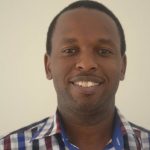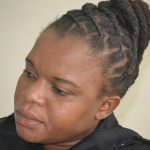How are participants benefiting from the Women’s Health, Masculinities and Empowerment course currently underway in Nairobi, Kenya?
Here’s the experience of Damascene Habimana, head of the Communications and Advocacy unit at the Rwanda Men’s Resource Centre (RWAMREC):
 The safe motherhood session of Thursday morning (03 September 2015) was one of the most outstanding for that day. During the session, we also watched a movie titled: “Why did Mrs X die?”. One of the things that made this presentation outstanding is that I could easily notice the causes and shortcomings of the ‘health’ system that led to the death of Mrs X. Also, explanations were very clear and could easily be compared to real life situations. I liked very much the fact that safe motherhood is not only about improving care service at health centres and hospitals, but rather, the role of the whole community – especially people who have the power to make decisions related to safe motherhood – community leaders and men, for example.
The safe motherhood session of Thursday morning (03 September 2015) was one of the most outstanding for that day. During the session, we also watched a movie titled: “Why did Mrs X die?”. One of the things that made this presentation outstanding is that I could easily notice the causes and shortcomings of the ‘health’ system that led to the death of Mrs X. Also, explanations were very clear and could easily be compared to real life situations. I liked very much the fact that safe motherhood is not only about improving care service at health centres and hospitals, but rather, the role of the whole community – especially people who have the power to make decisions related to safe motherhood – community leaders and men, for example.
As related to my work, this session allowed me to think further why we should involve men in MCH (Maternal and Child Health) and SRH (Sexual and Reproductive Health). We usually focus on the benefits of knowing what is happening at the health care facility during ANC (antenatal care). However, with this new insight from this session, more components could be added to the interventions we are running or to our future ones. These components would, therefore, focus on how men can prevent maternal mortality, on recognising emergency signs for pregnant women and in staying always alert in the case of a pregnant women.
Laurelle Mbaradza, a Project Officer at the Diocese of Mutare Community Care Programme, in Zimbabwe, also shared her experiences:
 What stood out for me on Friday (04 September 2015) was the data that the global burden of disease data shows that men are the ‘weaker sex’, as they are more susceptible to diseases. I found this information very important because I think it’s something that men don’t know, and I think if this data is availed to them it will trigger them into a health-seeking behaviour mode. My work will really gain from that session, as we explored ways to engage men and increase the availability of gender-transformative interventions and to ensure that men access health services.
What stood out for me on Friday (04 September 2015) was the data that the global burden of disease data shows that men are the ‘weaker sex’, as they are more susceptible to diseases. I found this information very important because I think it’s something that men don’t know, and I think if this data is availed to them it will trigger them into a health-seeking behaviour mode. My work will really gain from that session, as we explored ways to engage men and increase the availability of gender-transformative interventions and to ensure that men access health services.
[The Women’s Health, Masculinities and Empowerment: Advocacy and Training course is a two-week programme that is currently being taught at Kenyatta University, in Nairobi, Kenya. It is a partnership of Sonke Gender Justice, the UCGHI Center of Expertise on Women’s Health and Empowerment and MenEngage Africa]
